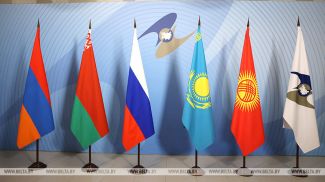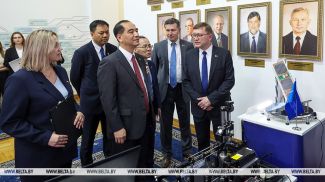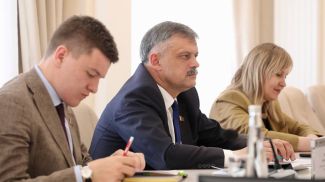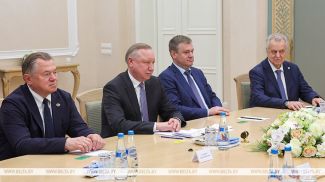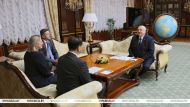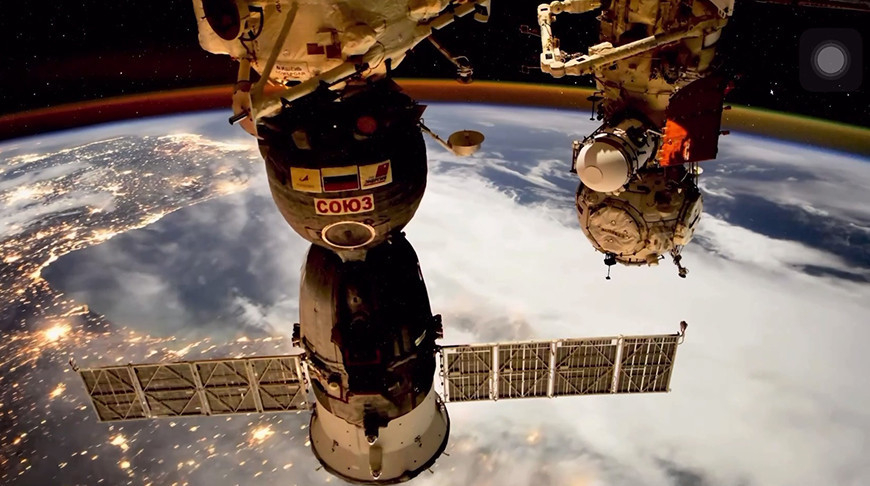
An archive photo courtesy of Roscosmos
MINSK, 29 March (BelTA) – The cosmonauts, who arrived at the International Space Station (ISS) on 25 March, including Belarus’ first woman cosmonaut Marina Vasilevskaya, feel confident and proceed with the research program. Roscosmos First Deputy Director General Andrey Yelchaninov made the statement during the expert and mass media forum “Union State. Scientific breakthrough” from the International Space Station (ISS), BelTA has learned.
Andrey Yelchaninov said: “Within the framework of cooperation with the National Academy of Sciences of Belarus we actively work on a program for research in orbit. The launch of the spacecraft, which delivered a Belarus citizen to the orbit for the first time, was a milestone event. Let me tell you right away why the launch was delayed. The launch delay was not an emergency. It was a postponed launch. Equipment did not malfunction. It gave reasons to carry out additional checks. Lives of the cosmonauts, their health, and the need to fulfill the main function of the mission are prioritized. This is why we decided to shift the launch. Then the launch successfully took place. Everything is fine in orbit now. The cosmonauts feel confident and are busy doing the research program. We hope they will land safely on 6 April.”
Roscosmos has been cooperating with the National Academy of Sciences of Belarus and the relevant agencies that focus on outer space for more than 20 years. “Eight programs were successfully implemented in this period. We now maintain the tightest contact with the relevant organizations and are working on the single goal of creating a constellation of many satellites. By relying on the competences Belarus has, on scientists, specialists, and the manufacturing potential, we hope that we will create a satellite constellation that will provide the Union State of Belarus and Russia with remote Earth sensing data in full and with the quality that will be on par with the world standards. Everything is in our hands. We are capable of doing it in the near future,” the Roscosmos first deputy director general said.




